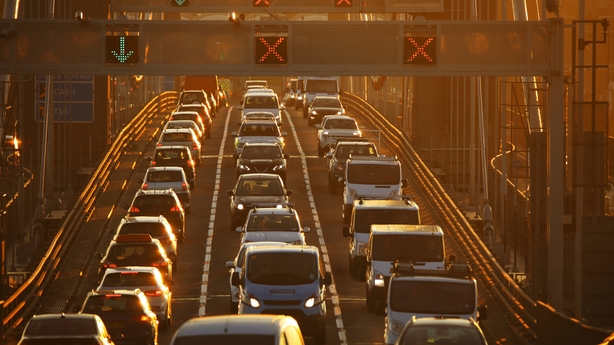What is air pollution, and what effect does it have on the body?

The consequences of poor air quality can be dire, but how do you know when the air you're breathing is polluted?
We breathe it every second of every day, but how much do we consider our air quality?
The Environmental Protection Agency estimates that there are approximately 1,300 early deaths each year that are linked to air pollution. The consequences of poor air quality can be dire, but how do you know when the air you're breathing is polluted?
John Wenger, Professor of Chemistry at University College, and Dr Oisin O'Connell, Respiratory Consultant Bons Secours Hospital, joined Today with Claire Byrne to discuss air pollution and the impact it could have on your health.

Having worked in the lung transplant unit in Ireland, O'Connell has seen the affects of poor air quality on the body. "My best description of describing the lungs is, the lungs are like a series of pipes going into balloons. The balloons are a sponge-like material", he said.
He added that many of us think of lung conditions as being obstructive lung conditions, such as asthma and COPD. However, restrictive lung conditions can be just as damaging, "where the lung doesn't fill up to the adequate capacity".
"We all lose lung function over time but people that are exposed to chronic air pollution and any kind of environmental toxin actually lose lung function anywhere between two to three times faster."
He said that air pollution can cause a loss of the elastic recoil in the lung and toxins build up in the lung itself.
As for what air pollution actually is, Wenger explains that it is where there is "any added materials that go into the air, so they could be gases, you may have heard of nitrogen dioxide or sulphur dioxide or carbon monoxide, but also particles".

These particles can come from combustion sources like traffic, fires in the home, industry and more.
He added that because of the nature of those emissions, these particles can be at their highest in the winter months. "Our biggest problem, really, is with solid fuel burning in the winter months", he said.
Where a town is located can also play a role in the air quality of the area. Wenger highlight Ennis in Co Clare as having a particular problem because of "its local geography", and sitting in a bit of a dip.
"What that means is the air pollution is less likely to be dispersed, so the concentration will rise and people are breathing more pollution". Macroom in Co Cork and Enniscorthy in Co Wexford have a similar geography.
O'Connell noted that there are short term and long term consequences to breathing in poor air. "The effects of air pollution, they can be so subtle and gradual but actually, over time that builds up."
"On average, everyone loses about 30ml of lung function per year. A smoker loses about 70ml of lung function a year. There's huge variation within that between genetic factors and environmental factors, but actually air pollution is a major contributing factor to a major decline in lung function."
He added that that can "manifest in later life" as breathlessness, coughing, a susceptibility to chest infections and a reduced exercise tolerance.
Staying fit and active is one way to try to reduce the loss of lung function over time, O'Connell said. Avoiding airway toxins is a major one, as well, particularly avoiding smoking. O'Connell noted that 75% of obstructive lung disease is caused by smoking and 25% by other airway toxins. "In China and India, it's actually 60% is caused by airway toxins from indoor cooking or barbecuing, poor quality air, poor ventilation.
"So if you can reduce those chronic airway irritants and avoid passive smoking, be cautious around vaping, all of those are chronic traumas to the lung."
To listen to the full interview, click above.